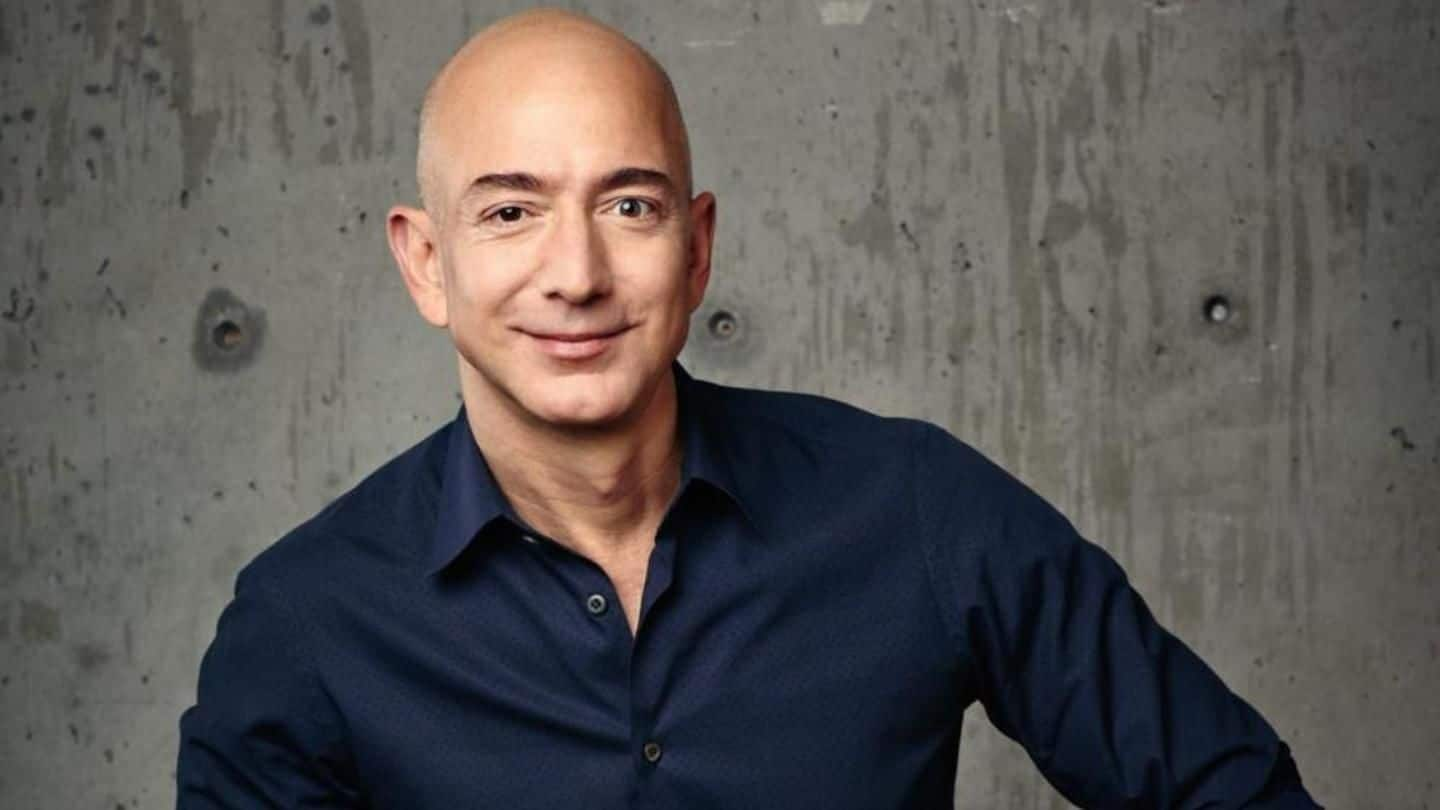
Amazon reaches $1 trillion mark, but that's just the start
What's the story
On Tuesday night, Amazon's shares briefly touched $2050.50, taking the e-commerce giant's market capitalization to $1 trillion, and making it the second company after Apple to touch the mark. However, the tag of "second" would do Amazon an injustice. The e-commerce giant is a different beast altogether, and Amazon's vision could see it rise to unprecedented heights in the coming years. Why? We explain.
Vision
Amazon's vision isn't limited to a niche, rich audience
Of course, with only two companies ever having reached the $1 trillion mark, there's bound to be comparisons. But, is Apple really comparable to Amazon? Whereas Apple relies on premium products for a niche audience with large purchasing power, Amazon doesn't care how much you have in your pocket. The e-commerce giant's vision is much more grand, and seeks to encompass all.
Approach
Whatever you want, Amazon has it
That itself gives Amazon a different aura. From products that cost less than $1, to products costing hundreds of thousands of dollars, Amazon's approach is something like, "Whatever money you've got to spend, we have something for you." That's markedly different from Apple's "We only sell to the rich" approach, and this difference itself makes Amazon a behemoth, albeit with a longer gestation period.
Goals
Amazon simply wants to be the biggest there is
Amazon currently earns less than a tenth of Apple's profits, but again, it would be wrong to compare. Whereas Apple is the kind of profit-driven company Wall Street loves, Amazon stands out of that fold. Growth and market capture at any cost is what Amazon has always cared about, and the company has gone about it bravely, with an eye on the future.
Dominance
Amazon's dominance has already started to show
The result? Currently 49 cents of every dollar spent on e-commerce in the US goes into Amazon's pocket and, if Amazon has its way, that number could rise even further, and more countries could follow suit. Analysts adore Amazon and think investment in the company is worth every cent, with the e-commerce giant commanding a consensus recommendation score of 4.8/5. Apple stands at 4.1.
New blood
Amazon's sprint to $1 trillion demonstrates its exuberance
What's more? Amazon is a young company. In the 21 years of its existence, Amazon has taken the fight to the 38-year-old veteran, Apple, and has done so with the exuberance only youth can exude. While Apple took around a year to travel the last $200bn to reach $1 trillion, Amazon did it in a couple of months.
Diversification
Amazon has dipped its hand in every cookie jar around
Diversification and an ever-expanding user base were keys to Amazon's meteoric rise. Whereas Apple has largely banked on high average selling prices of its devices, increasing revenues from its apps and streaming service subscriptions, Amazon has dipped its hand into every cookie jar it could find, from retail to web services to groceries to health to drone deliveries. And, that's just the start.
Driver
Amazon's Web Services has been a game changer
Right now, Amazon's Web Services is driving the company, accounting for 65% of its operating profits. According to estimates, AWS alone could generate as much as $45bn operating profit by 2020, thereby allowing Amazon to invest in a diverse set of products and services. Amazon has traditionally heavily reinvested in its businesses, and a large profit margin could make these investments even stronger.
Expansion
Amazon is expanding and diversifying at a hitherto unseen scale
Given such favorable predictions, Amazon is eyeing the world. The company has already started making inroads in the US health and pharmaceuticals sector, acquiring pharmaceutical start-ups, piloting health clinics, and re-imagining the health industry. Amazon already has a foothold in AI (read: Alexa), and its ad business is growing rapidly. The giant is also investing in physical retail, leaving little space for any competitor.
Conclusion
The world is Amazon's oyster
Amazon's vast range of products and services makes it a company that's pretty unassailable. Given its vast portfolio and capital, Amazon enjoys the versatility to exit unprofitable businesses and augment existing ones or start new ones. It's precisely this versatility, coupled with its traditional e-commerce dominance and growing cloud-computing business, that makes it so powerful. Is the world Amazon's oyster? Sure seems like it.